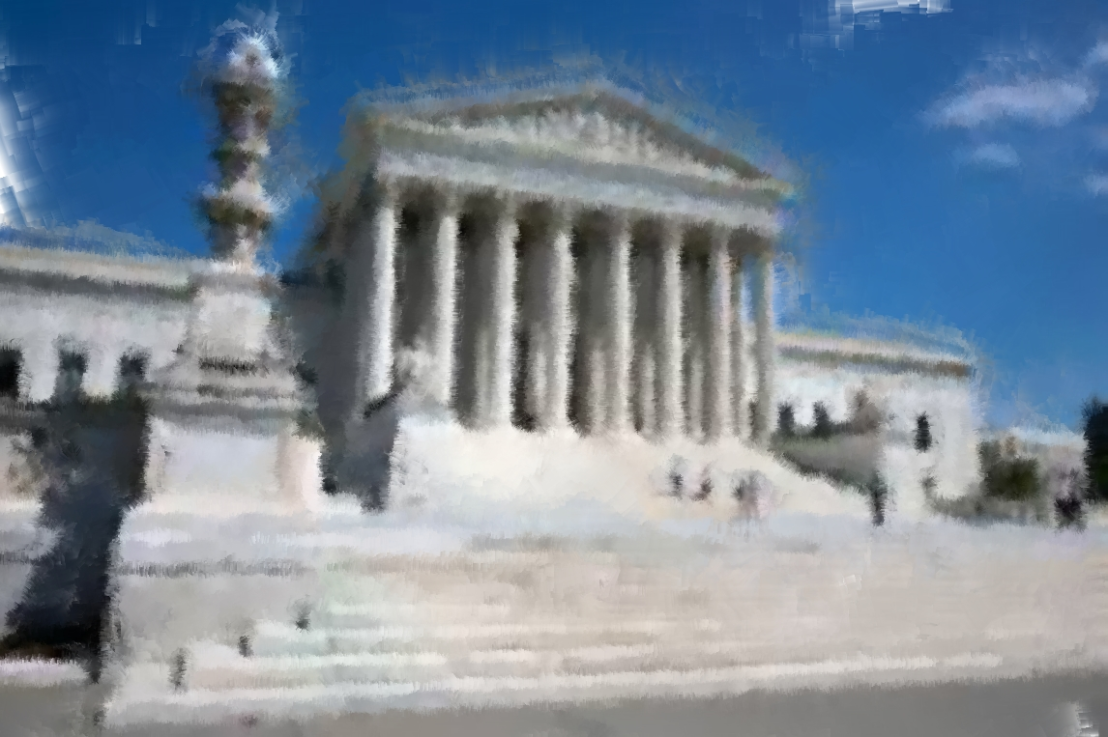Candidates’ Speech — Can a Court “Welcome Restraint” of Odious Campaign Statements? Trump v. International Refugee Assistance Project, No. 16-1436
June 9, 2017: PPLI (along with Center for Competitive Politics) filed an amicus curiae brief in the Supreme Court of the United States supporting a request that the Court review (grant certiorari) the decision of the U.S. Court of Appeals for the Fourth Circuit in No. 16-1436, Trump v. International Refugee Assistance Project. This case, popularly known as the “travel ban” case, is an Establishment Clause challenge to President Trump’s Executive Order 13,780 temporarily halting non-immigrant admissions to the United States. PPLI and CCP filed a brief to show the Court that there was a hidden, but very important, First Amendment speech issue in the case: whether the Fourth Circuit’s proposal to “chill” certain candidates’ speech as part of an Establishment Clause review was constitutional under the free speech protections of the First Amendment.
Oct. 10, 2017. In a one-page Order, the Supreme Court vacated the Fourth Circuit’s opinion in Trump v. Int’l Refugee Assistance Project, No. 16-1436, and sent the case back to the Fourth Circuit with instructions to dismiss as moot the challenge to Executive Order 13,780.
February 15, 2018. The Fourth Circuit, as directed by the Supreme Court, issued a new opinion. In its new opinion, the Fourth Circuit said: “we need not and thus do not rely on pre-election statements in assessing the constitutionality of the Proclamation.”
June 26, 2018. The Supreme Court of the United States issued its final decision in this long line of cases. The Court reversed the lower court decisions enjoining the “travel ban” and sent the cases back to the lower courts.
“Appearance of Corruption” — Can Freedom of Association and Speech Be Limited Because It is Unpopular? Zimmerman v. City of Austin, Texas, No. 18-93, and Lair v. Mangan, No. 18-149
August 23, 2018: PPLI filed briefs in the Supreme Court of the United States asking the Court to review two cases in which campaign contribution limits were imposed without any showing of actual quid pro quo corruption. The brief in Zimmerman, filed with the Institute for Free Speech, challenged the decision of the U.S. Court of Appeals for the Fifth Circuit to uphold a ballot initiative limiting campaign contributions without any evidence in the record showing any corruption. The brief in Lair challenged the decision of the Ninth Circuit to uphold a Montana campaign contribution limit which the District Court struck down because there was no corruption, because the appeals court thought there was a “risk” of corruption in the reports of attempts to seek official actions. More info.
